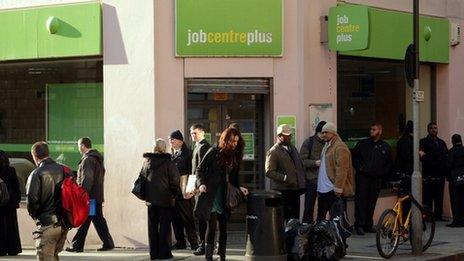Universal credit: Minister hits back at critical report
- Published
Mr Duncan Smith said the rollout of universal credit would be delivered "within budget and within the timescale"
Iain Duncan Smith has dismissed a highly critical report on his overhaul of the welfare system, insisting it will come in "on time and in budget".
The National Audit Office found the universal credit project had been badly managed and provided poor value.
But the work and pensions secretary said problems had been solved and the benefit, currently being piloted, was "succeeding" and "progressing".
Labour said the government had "lost control of the truth".
Under the universal credit plans, six key means-tested benefits - jobseeker's allowance, employment support allowance, housing benefit, working tax credit, income support and child tax credit - are to be combined into a single payment which ministers say will ensure that claimants are always better off in work and also reduce fraud.
But the changes, which were due to have been rolled out nationally for new claimants next month, were delayed following IT glitches and further testing is being carried out.
'Taken action'
The National Audit Office found there had been "early setbacks", external and the project had been "over-ambitious" and provided poor value for money. It reported:
Officials were "unable to explain" the reasoning behind the timescales or their feasibility
There were no "adequate measures" of progress
Computer systems lacked the function to identify potentially fraudulent claims, relying instead on manual checks
£34m investment in IT systems was written off
The Department for Work and Pensions (DWP) lacked IT expertise and senior leadership
Delays to the rollout would reduce the expected benefits of reform
But Mr Duncan Smith, the driving force behind universal credit, argued fiercely against the NAO's criticisms - calling them "historic" - when he faced the House of Commons.
He told MPs he had set up his own investigation in 2012, after he felt civil servants were not "focusing" properly on delivering the changes.
The results had shown "quite categorically that my concerns were right, that the leadership was struggling and that there was a culture of good news prevailing and that intervention was required".
Mr Duncan Smith said he had revamped the team running the project, bringing in outside experts to guide civil servants.
He added: "I would like to remind the House that universal credit is not just succeeding but it is also progressing."
He also said: "Every NAO recommendation that they made in the report has already been made and the key lesson that I take from this is simply this - that, unlike the previous government who went and crashed one IT programme after another, no government ever intervened to change them early so they delivered on time. We are not doing that.
"I have taken action on this particular programme. This programme will deliver on time and in budget."
He said the pilot scheme, which has begun with 1,000 people in the Manchester area, was "demonstrating that the IT we put forward for this actually works".
But his Labour shadow Liam Byrne, who supports universal credit in principle, said: "It is now quite clear that Iain Duncan Smith has lost all control of his department and, frankly, he has now lost control of the truth."
He added: "This is a damning report. It shows they started work without knowing what they were doing, millions in IT spend has been written off and there are no counter-fraud measures worth their name."
In a bad-tempered clash, Mr Byrne also urged Mr Duncan Smith: "You must apologise to the House and you must now convene cross-party talks to get this project back on track. The quiet man must not become the cover-up man."
Mr Duncan Smith branded Mr Byrne's comments "suitably pathetic", saying the project would be delivered on time and on budget, adding there was "no major change" to the delivery programme.
Universal credit requires the merging of complex computer systems in benefits offices, HM Revenue and Customs and local councils - which the government insists can be done.
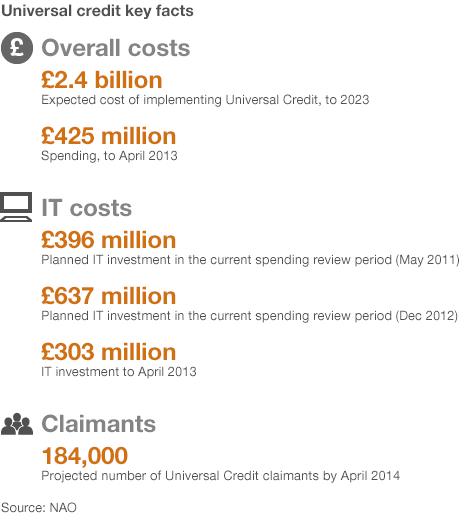
- Published5 September 2013
- Published5 September 2013
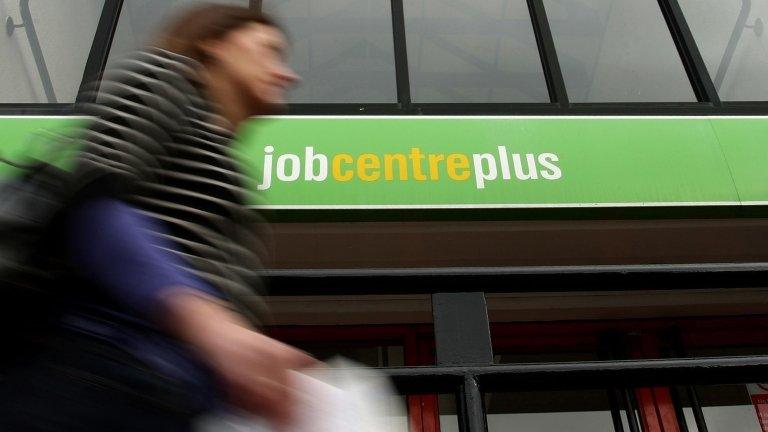
- Published10 July 2013

- Published15 February 2015
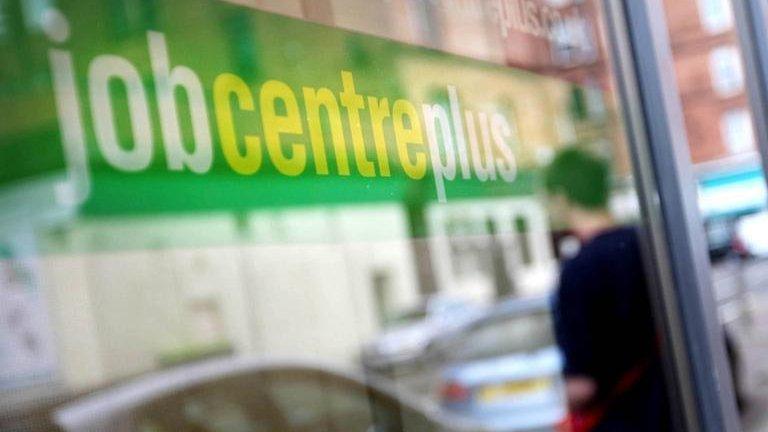
- Published17 September 2012
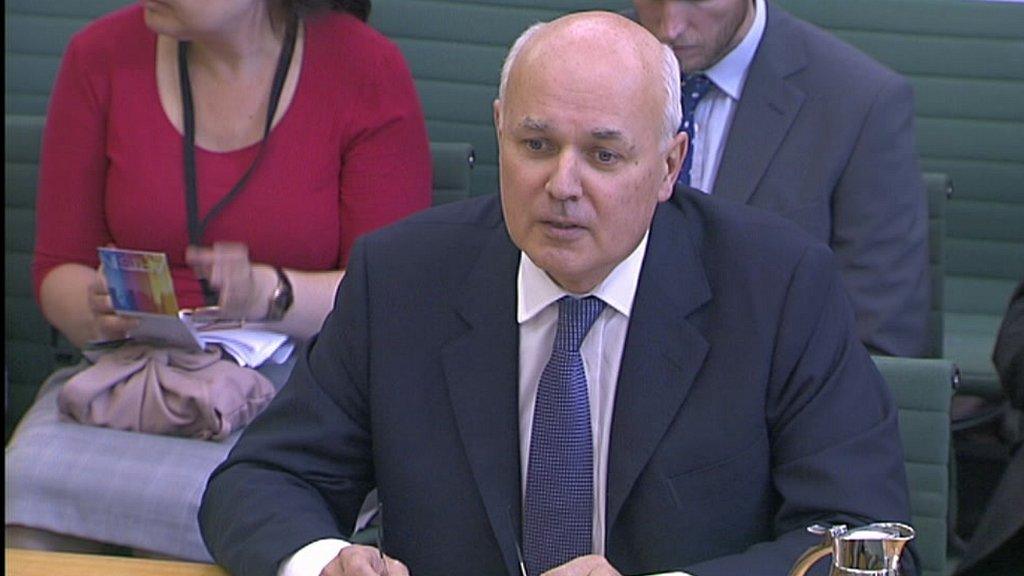
- Published1 November 2011
